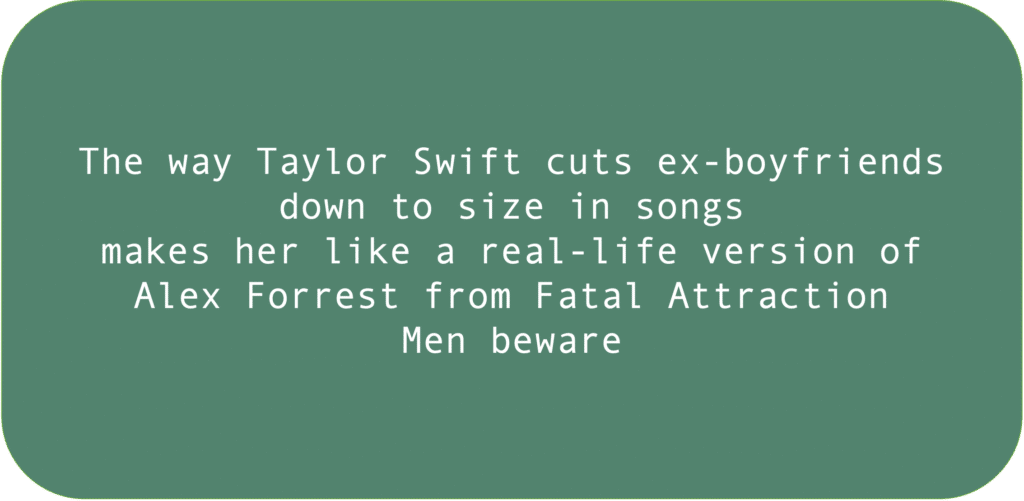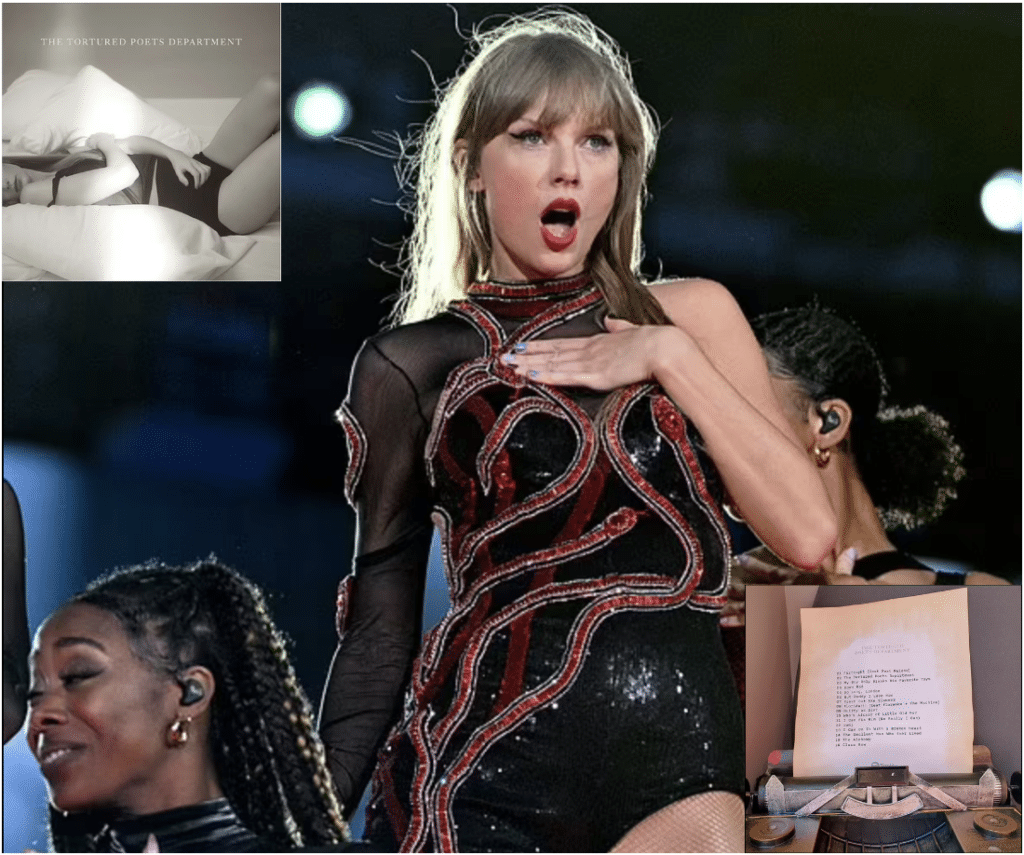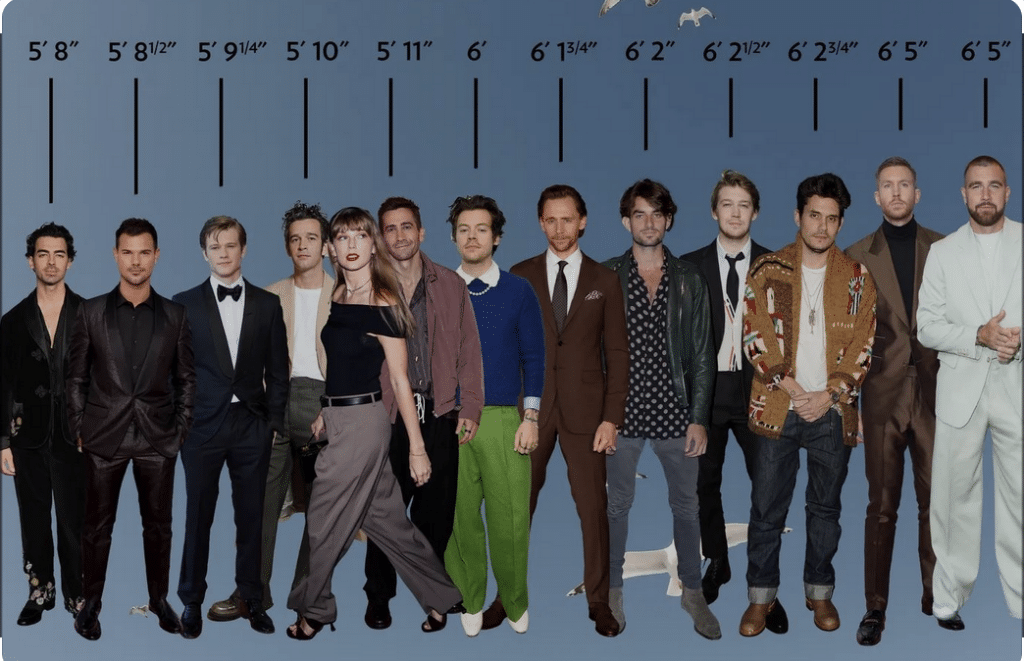
Taylor Swift’s transformation from a country pop tart to a global pop star is staggering. However, with her latest release, “The Tortured Poets Department,” she’s biting the hand that feeds her.
Swift mocks the tortured poet archetype. But, arguably, this album makes her the embodiment of a songstress torturing herself in a vain attempt to write good poetry. The irony is rich, and not in the literary sense she probably hopes for.
Taylor Swift, the tortured poet
It’s telling that critical reviews often feature lists of the album’s worst lyrics, including gems like:
At dinner, you take my ring off my middle finger / And put it on the one people put wedding rings on / And that’s the closest I’ve come to my heart exploding.
Her aim is poetic subtlety. But her impact is invariably soap opera melodrama.
Consider the introspective and nuanced lyrics of Carole King, Carly Simon, Joni Mitchell, or the raw emotionality of Amy Winehouse. By comparison, Swift’s lyrics are, at best, like sugary strands of cotton candy — sweet, insubstantial, and dissolving immediately upon any serious thought.
Not to mention that Swift’s dimwitted lyrical stunt must have tortured poets like Sylvia Plath, Anne Sexton, and Anna Akhmatova rolling over in their graves.
In short, Swift’s lyrics lack the depth of tortured poetry. But, again, I suspect the irony is completely lost on her.
The petty revenge anthology
Remarkably, the pervasive theme in Swift’s discography is not love or heartbreak, but vengeance — a PG version of revenge porn. She spins this narrative so frequently that it seems Swift dates not to find love for growth, but to gather fodder for songs.
Only that explains lyrics like this:
Whether I’m gonna be your wife or / Gonna smash up your bike, I haven’t decided yet / But I’m gonna get you back.
Yet, there’s a darker side to this success. Much like Donald Trump promises retribution for his MAGA supporters, Swift offers musical revenge fantasies to her Swifties.
Trump is acting as a proxy for the millions of aggrieved MAGA supporters who worship him. Swift is acting as one for the millions of heartbreak Swifties who adore her. But both are feeding into a cycle of grievance and retribution that accounts for the more troubling aspects of political and pop culture today.

Time to graduate from high school drama
Given her platform, Swift can influence millions. And, to her credit, she has used it positively, encouraging young people to vote.
But she channels far too much of her influence into the fleeting angst of teenage love. Swift is a 35-year-old woman, for Christ’s sake.
It’s high time she evolved from high school narratives to themes with broader social and emotional depth. The public might forgive a fledgling artist for leaning heavily on personal drama. However, a seasoned musician like Swift should be capable of more substantial exploration.
This is why it is distressing and farcical in equal measure that prestigious universities are offering courses based on Swift’s lyrical tales of teenage angst and romantic skirmishes. After all, this is a dumbing down of courses that use icons like Beyoncé or Rihanna to dissect themes of race, culture, and feminism.
Alas, we appear more interested in training our future leaders to decode the subtleties of celebrity breakups than in preparing them to tackle the world’s great challenges.
This is more than just an education on the modern zeitgeist; it’s a stark symbol of our cultural obsession with celebrity. Frankly, pop idols and educational institutions should aim higher than the teenage heartbreak narrative.
The business of breakups
Even the way Swift markets her albums reeks of the Trumpian art of the steal. Because only naked grift motivated Swift to drop two albums yesterday, offering them in a rainbow of vinyl to maximize sales.
Trump is famous for sending reams of fundraising emails on every conceivable occasion. Now, she is using every conceivable means to get her fans to part with their money.
Admittedly, the relentless and shameless marketing of her music is why she’s a billionaire. But it has become so crass and greedy that it drew the ire of her far more critically acclaimed peer, Billie Eilish, a two-time Oscar winner for songwriting.
Even so, Swift’s cultural impact is undeniable. She’s the first artist to become a billionaire through her music alone. Rihanna is a billionaire, too, but had to peddle Fenty products like lingerie, cosmetics, and perfumes.

Meanwhile, what self-respecting man would date Swift knowing he’s just providing fodder for her next album? Because it speaks volumes that notches on her bedpost include the likes of John Mayer, Jake Gyllenhaal, Harry Styles, Tom Hiddleston, Joe Alwyn, and Travis Kelce.
After all, these men are all famous in their own right. Yet they willingly subjected themselves to this emasculating musical ritual.
Granted, such high-profile pairings bring mutual benefits, especially in this world of revenue-generating clicks and views. They are matches made in self-serving, cross-promotional heaven, boosting their respective brands. Sure enough, since he began dating Swift, Kelce has made more money from podcasting and doing TV commercials than from playing football.
The confluence of Swift’s personal relationships and commercial success weaves a complex narrative. Nobody has navigated the fickle waters of pop superstardom better than she. But hope springs eternal that she’ll find a way to channel her obvious talents into art that transcends the petty and touches on the profound.